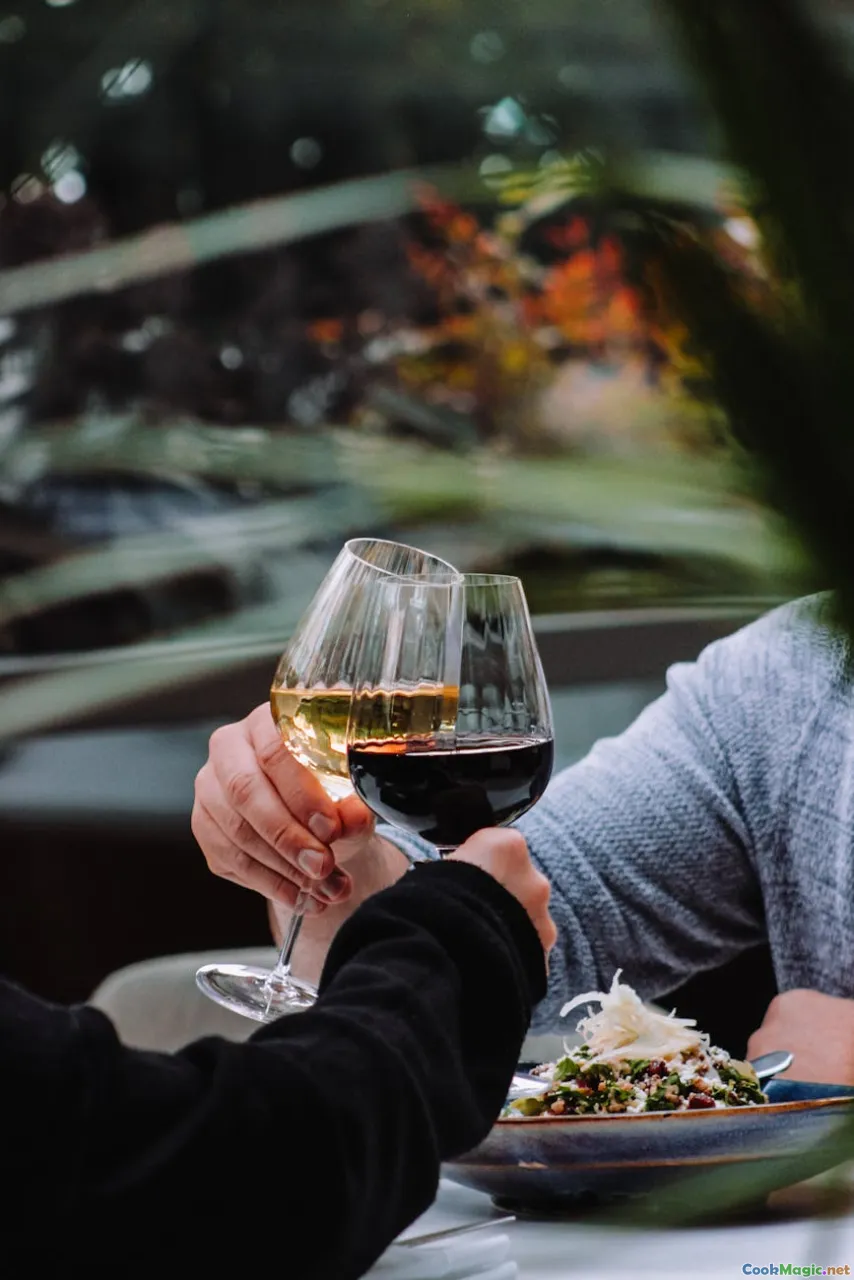Wine Culture and Its Role in Liechtenstein Dining
8 min read Explore how wine influences Liechtenstein's culinary traditions, social customs, and local identity through rich history, sensory experiences, and cultural significance. June 17, 2025 00:05
Wine Culture and Its Role in Liechtenstein Dining
Imagine a tiny principality nestled between the majestic Swiss Alps and the rolling hills of Austria, where centuries-old traditions intertwine with modern elegance. Liechtenstein, often overshadowed by its larger neighbors, holds a unique secret—its profound relationship with wine. Beneath the grandeur of its alpine landscapes lies a rich tapestry of wine culture that shapes social life, culinary practices, and national identity. This article invites you on an immersive journey into the heart of Liechtenstein’s wine tradition, revealing how this ancient beverage continues to influence every sip, every meal, and every celebration.
The Historical Roots of Wine in Liechtenstein
A Legacy Carved in Vineyards
Liechtenstein’s wine story begins centuries ago, rooted in the Roman era when viticulture first took hold along the Rhine River’s fertile banks. The region’s microclimate—mild summers, crisp autumns, and well-drained slopes—proved ideal for growing grapes. Over the centuries, local monasteries and noble estates cultivated vineyards, embedding winemaking into the fabric of daily life.
From Monastic Cellars to Modern Cellars
In medieval times, monks maintained vineyards and produced wine not only for religious rituals but also as a vital economic resource. Their meticulous techniques, combined with the region’s pristine natural environment, laid the foundation for a resilient winemaking tradition. Today, small family-run wineries carry forward these heritage practices, blending tradition with innovation.
The Geography and Climate: Nature’s Gift to Liechtenstein’s Wines
Terroir: The Soul of the Vine
Liechtenstein’s vineyards are perched on gentle slopes and terraces overlooking the Rhine Valley. The soil composition—rich with limestone and marl—imparts mineral complexity and elegance to the wines. The unique terroir ensures grapes develop concentrated flavors, balancing acidity and sweetness.
Climate: A Perfect Symphony
The region benefits from a continental climate influenced by the Alps, offering warm summers that ripen grapes fully and cool autumns that preserve acidity. This climatic harmony results in wines that are vibrant, well-structured, and deeply expressive.
The Varietals and Wine Styles of Liechtenstein
The Local Grape Varieties
While international varieties like Riesling and Pinot Noir are gaining popularity, Liechtenstein’s traditional grapes include:
- Riesling: Known for its aromatic finesse and crisp acidity.
- Elbling: An ancient white grape delivering light, refreshing wines.
- Blaufränkisch: A red variety producing bold, fruity wines with spicy undertones.
Signature Styles
Liechtenstein’s wines often showcase a delicate balance—light yet complex, vibrant yet refined. The best examples are characterized by their mineral notes, bright acidity, and subtle fruitiness, making them perfect companions to local cuisine.
Wine and Cuisine: A Harmonious Union
Traditional Dishes and Their Perfect Pairings
Liechtenstein’s culinary landscape is heavily influenced by alpine ingredients—fresh dairy, hearty meats, and seasonal vegetables. Wine plays an integral role in enhancing these flavors.
- Käsknöpfle: Small pasta with cheese, paired beautifully with a crisp Riesling that cuts through the richness.
- Roast Veal: Served with a lively Blaufränkisch, accentuating the meat’s savory depth.
- Fruits and Pastries: Local apple desserts or sweet pastries are complemented by a slightly sweet, aromatic wine.
The Art of Pairing
Local sommeliers and home cooks alike emphasize balancing acidity with richness, and fruitiness with spice. This harmony elevates the dining experience, transforming simple meals into memorable celebrations.
Cultural Significance and Social Rituals
Wine in Celebrations and Traditions
In Liechtenstein, wine is more than a beverage; it’s a symbol of community and tradition. Festivals such as the annual Wine Harvest Festival bring people together to celebrate the grape’s journey from vine to glass. During these events, locals share stories, dance, and toast with glasses of their finest wines.
The Role of Wine in Social Life
Sharing wine fosters bonds—whether at family gatherings, local taverns, or formal dinners. The act of pouring and tasting is imbued with respect and camaraderie, reflecting the country’s warm and hospitable spirit.
Personal Stories and Anecdotes
Many Liechtensteiners recall their childhood memories of visiting vineyards with family, learning the art of tasting, or participating in harvests. These experiences nurture a deep-rooted appreciation for wine’s role in shaping personal and cultural identity.
Modern Innovations and Future Trends
Embracing Sustainability
Today’s winemakers are keen on sustainable practices—organic farming, minimal intervention, and eco-friendly cellars—all aimed at preserving the purity of the terroir.
Technological Advances
Innovations in vineyard management and wine production ensure quality and consistency, allowing Liechtenstein to compete on the international stage.
Tourism and Wine Tastings
Wine tourism is burgeoning, with vineyards opening tasting rooms and offering tours that blend education with scenic beauty. Visitors leave with not just bottles, but memories of a land where tradition and innovation coexist.
Personal Reflections: The Intangible Charm of Liechtenstein’s Wines
Having visited Liechtenstein’s vineyards, I was struck by the palpable passion and meticulous craftsmanship of local winemakers. Tasting a glass of Riesling in a sun-dappled cellar, I sensed the centuries of history, the harmony of nature, and the community’s unwavering dedication. Each sip told a story—of soil, climate, tradition, and the people who nurture the vine.
The experience deepened my appreciation for wine as a cultural artifact—an expression of place, identity, and shared humanity. In Liechtenstein, wine isn’t just a drink; it’s a living testament to resilience, artistry, and community.
Conclusion
Liechtenstein’s wine culture, though modest in scale, is immense in significance. It encapsulates centuries of history, a profound connection to the land, and a vibrant social fabric. Whether enjoyed in a cozy tavern, at a lively festival, or in the tranquility of a vineyard, wine remains a cherished symbol of Liechtenstein’s enduring spirit. As this tiny nation continues to evolve, its wines promise to tell even richer stories for generations to come—inviting us all to savor the taste of tradition and innovation intertwined.
Embark on your own journey into Liechtenstein’s wine world—and discover how a simple glass can open a window into a land’s soul. Cheers!









